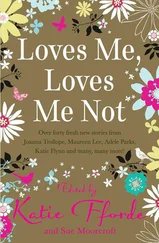Natasha’s parents, for the brief years she knew them, were big on confessions. They weren’t the first parents in their neighborhood to give their adorable five-year-old daughter away to an orphanage in hopes she’d get to eat at least one meal a day, but they may have been the first parents to not promise they’d come back for said daughter after they got back on their feet. In their small apartment in the Fort National neighborhood of Port-au-Prince, her mother often told her that nothing good ever came to beggars whenever Natasha begged her parents for things, like food or water, or a toy to play with. Her mom, who’d given birth to her only child in the same orphanage she had been born in about sixteen years earlier, said no. No. Every. Single. Time. Her mother was an authority on begging, for she was a beggar, une professionelle . So there was no point in begging God, Maman scolded. Few men and women in the history of the world had begged God for mercy and better fortunes than her good, Catholic people had for the last five centuries. Look what that’s gotten you? If you want something, her mother said, you better not even whisper it to your so-called God, not if you really want it. You think I’m bad, but no one says no more consistently than Him.
Compared to my mother at my age, my present situation was not that bad, Natasha thought. The tarmac, the achingly blue sky, the private jet, the blue-helmeted soldiers, the sweltering heat, her wide-backed, soft-chinned husband, the look of envy in the eyes of the men who were his staff and friends, and the chirpiness of their other halves — but the torment of guilt would not disappear. Jesus, all that Catholic schooling, all those Masses, all that Bible reading and gospel singing, all those paintings, and only now, as I am about to betray my one true love, as I am about to prove my ignorance of the meaning of love, of You, my Lord, only now do I finally get it. I was supposed to love him for love’s sake.
Am I losing my mind as punishment? And you, the silent ghost, what are you looking at? Could you please tell me what to do, you mute fool? My parents would have something useful to say during this crisis. But they’ve been gone awhile now, haven’t they, God? Since you took them from me for no good reason, how about imparting a girl with some wisdom in this crossroad?
You know what, maybe I’m already sorted. I may actually love this fat old man. Maybe the feeling is so strange and novel and awesome, and its capacity to make me feel drunk, selfish, and even self-mutilating is so intense that I dare not say the name of the emotion even to myself, for surely love could bloom from the gratitude I feel towards him. Yes, love could. It could spring from such a well, slowly but worthily, unlike coups de foudre and the black rages they alternate and die with. Yes, love could. Unless hate came first.
Natasha? her husband said, snapping his fingers and nudging the girl out of her agita. The ghost of her great love blinked out of existence.
The President held his hand out to her. Natasha’s new husband had the unwelcome habit of asking her to hold his hand whenever he wanted to reassure himself of something or whenever he felt her attention slipping away from him, like a father to a child. Like a child, she hated this request. She hated it when boyfriends her age did it. Today a lover forty years her senior was doing it. Sure, he had put a ring on it, but come on. His fingers were big, brown, and hairy, like a bear’s, but with white hairs. Natasha couldn’t help but throw up a little in her mouth.
Come, he said, poorly feigning patience.
With that simple word, the young girl lashed out at her husband, though she stood still on the tarmac with her mouth closed. Only her unblinking, unsmiling eyes, big, brown, and catlike conveyed her indignation. Was that an order? Who does he think he is? She felt the hairs on the back of her neck rise. I can’t believe he did that, right here, right now.
The couple was walking toward a gleaming private jet for a one-way flight to Florence, Tuscany, Italy, in other words, heaven on earth; that is, if, like Natasha, you are a painter with fantasies of becoming an all-time great Catholic artist, like Da Vinci, Michelangelo, and Dante, even though Dante was a writer and not a painter. Natasha had loved Dante and all things Florentine since she’d stolen and read front to back and back to front a beat-up copy of Dante’s Divine Comedy in Monsignor Dorélien’s library when she was kid. Heaven and Florence, Dante’s hometown, were Dante’s obsessions. They slowly became Natasha’s too, in no particular order. The irony that the Divine Comedy was a long poem about acute homesickness by a man who hated life in exile, and here she was, hoping for happiness in exile, was lost on her. The whole point of her marriage was to give her the freedom to fly off the island to live a life of adventure of her own choosing and not of fate’s.
A memory of a recent night with her husband wafted before her eyes. So bold and proud in public, he was meek and anxious sexually, more often doomed than not. She looked at her husband with a flash of charitable eyes. Yes, he still had that damn hand thrust at her without even bothering to get off his stupid cell phone. Maybe he sensed her communion with the ghost of the young man he’d stolen her from. His professionally honed ability to read people frightened her. It sometimes seemed as though he could read minds. Still, he was about to give her Tuscany. That should buy him some consideration. He was old, so he should be allowed to be old-school. His manners, like the suede loafers he favored, were dainty and chivalrous. Where the young girl had seen imperiousness, a dash of guilt from her emotional betrayal of him made her see charm even though the white shirt, light blue suit, and purple pocket square he wore were jet-setish and goofy. Oh, the international headlines the next morning were going to be cruel.
Mr. President? she said. Did I do something wrong?
Come now, sweetheart, he said. That’s no way to talk to your husband. How many times have I told you to call me Jean? You have that right now, you know. You are my wife. You are no longer the girl working in that awful orphanage. I’m no longer the president of Haiti. As of this morning I gave up the job, remember? I threw it all away for you, my love. In fact, once we get on that plane, I’ll have the UN PR guy send a press release out telling the whole world that I shall be known henceforth as Mr. Natasha Robert. Your name will be my name. That’s my new name. Do you like it? I like it. I think it has a nice ring to it.
Natasha did like it. She looked past his smiling eyes at the range of treeless brown mountains that bordered the airport. Two days earlier, they had gotten married in a hastily arranged ceremony that fell somewhere between a shotgun and a bazooka wedding. Held in Sacré Coeur, a small yet beautiful church, the ceremony struggled for cheer. The sky was overcast. The mood inside the church was rushed and tense. Sweat ran down her back, causing her body-fitting dress to cling too tightly to her muscular frame. They exchanged their vows in whispers at an altar filled with flowers and candles the scent of vanilla. The groom cried. The bride didn’t. His ancient mother and seemingly even more ancient friends wore looks of disbelief. Many of them were giddy as girlfriends. Natasha suspected some of them had cashed in longtime bets on whether their buddy would ever make it down the aisle. She didn’t invite anyone she knew to bear witness to their union. She didn’t even tell her few friends about her wedding plans. They would have disapproved. Weren’t you supposed to marry the other guy? they’d say, a reminder she didn’t need. She wished to be as alone as possible during the transaction, er, event. She also hoped the event went by quickly, which it did; thus only now did Natasha Robert find herself asking questions with answers the young girl should have intuited much sooner, if she was into such things like forethought when it came to men.
Читать дальше












